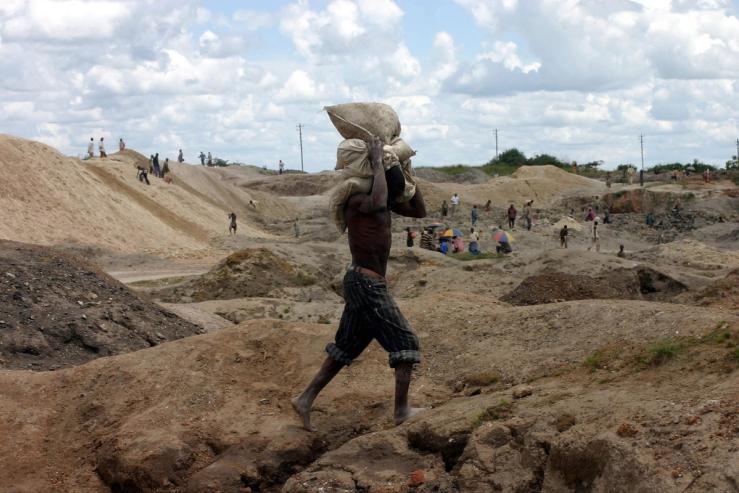The News
DR Congo authorities have suspended a major Chinese-owned copper and cobalt operation after a dam collapse spilled contaminated water into Lubumbashi, the country’s second-largest city.
A containment dam belonging to Congo Dongfang International Mining (CDM) spilled “several million cubic meters of electrolytes” on Nov. 4 that flooded hundreds of homes in three neighborhoods, forcing residents to flee the area. Environmentalists also warned of pollution to well water, which many homes use daily.
The leakage is the latest environmental accident in the Copperbelt region between DR Congo and Zambia. In February, a Chinese-owned dam holding mining waste collapsed, releasing acidic effluent into the Kafue River, a critical water source for 60% of Zambia’s population. In 2023, mining operations at Boss Mining, a subsidiary of Eurasian Resources Group, were suspended after floods caused “enormous environmental damage” and fatalities in Kakanda, between Kolwezi and Lubumbashi.
There have been growing calls from African governments and critics of Chinese mining operations, which dominate the sector, for improved safety standards.
DR Congo’s Mines Minister Louis Watum criticized CDM’s explanation, saying its waste storage and processing facilities “do not meet any international standards,” citing the lack of watertight barriers, structural stability, control devices and an emergency plan.
Know More
Early assessments by experts suggest serious environmental damage. Water in the region has been heavily contaminated with lead, arsenic, and other substances, according to OCC, a government-commissioned group of independent environmental researchers. “We are already seeing biodiversity loss, especially fish and insects,” said Dickson Kabange, a member of the commission, after taking samples from the Lubumbashi river.
There are also concerns that the health impact on the city of more than 3 million people could be more significant than currently thought. “Some people will inhale toxic substances evaporating from the river,” warned Kabange. “Fish poisoned by the spill could also reach local markets, endangering thousands.” Kalwa Ghislain, a civil society leader in Haut-Katanga, told RFI of the “panic” following the burst of the CDM dam and warned of the “diseases and pollution that may follow.”
Elisha Iragi’s view
Local environmentalists said the latest crisis comes after prior warnings over the years of slow contamination of local waters and soil by toxic effluent from the CDM facilities. Two NGOs, Resource Watch and the Consortium Mazingira pour Tous, noted, in a statement seen by Semafor, that there have been earlier concerns about health risks and industrial negligence in the region.
A 2022 report by Africa Resource Watch documented pollution levels well above World Health Organization standards in the three affected Lubumbashi neighborhoods: Kasapa, Kamatete, and Kamisepe. Lead levels in the water at the time was four times above the recommended WHO threshold while copper, mercury, and nickel levels in the soil all exceeded permissible levels.
Step Back
CDM is a subsidiary of Zhejiang Huayou Cobalt Co based in Tongxiang, Zhejiang province, in China. It started operations as a cobalt processor in DR Congo in 2006, then started mining the following year. DR Congo is the world’s largest producer of cobalt, which has become a highly strategic mineral used in the production of electric vehicle batteries and other green energy technologies. According to data from the mining ministry, in 2024 CDM generated $1.1 billion in revenue, down from $1.52 billion in 2023, mostly from copper exports.
The View From Zambia
Zambia is still grappling with the fallout from the February Kafue River disaster, after a tailings dam at Chinese-owned Sino Metals collapsed, releasing toxic waste into the waterway that sustains millions. Reports have alleged the company initially tried to cover up the spill, delaying emergency warnings. While the Zambian government acted swiftly to neutralize acidity and launch investigations, critics say its response has been too lenient and slow to hold the firm fully accountable. Despite official assurances that water safety has been restored, independent tests suggest contamination and ecological damage persist.
Notable
- China’s Huayou is set to start lithium sulphate production in Zimbabwe in early 2026 as the southern African nation seeks to encourage more local processing.
Additional reporting by Ruben Nyanguila


